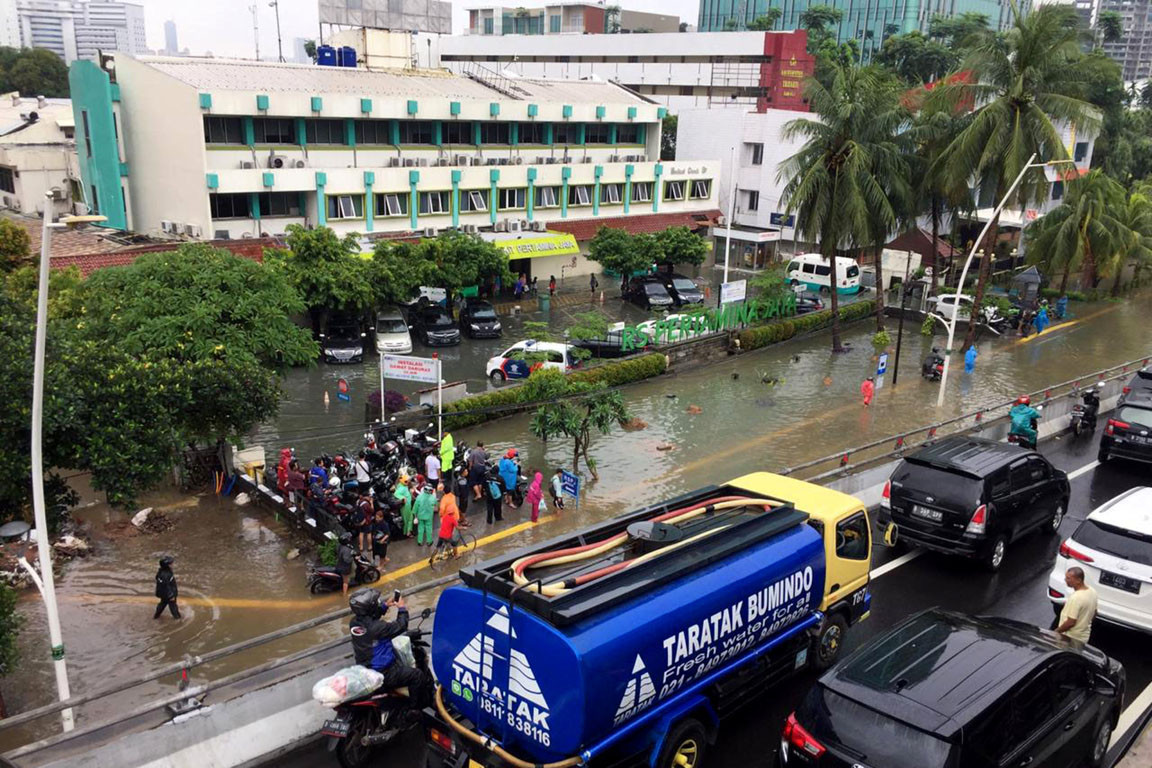Double disaster
Not only will flooding displace many and inflict material losses on the city, but it will also lift the infection curve even higher.

I
n some parts of the country the rainy season seems to have arrived and is causing concern in regions trying to cope with the COVID-19 pandemic. Wherever heavy rainfalls result in flooding there are risks of accelerated transmission of the disease, which is why the central and local governments need to take precautions sooner, rather than later.
For flood-prone areas like Jakarta, the rainy season will prove to be a double whammy. Not only will flooding displace many and inflict material losses on the city, but it will also lift the infection curve even higher given that the capital is one the epicenters of the pandemic.
On Tuesday Jakarta set a new record for single-day infections with 1,236, bringing the toll of positive cases to over 65,300. Nationwide, SARS-CoV-2, the coronavirus that causes COVID-19, has infected more than 253,000 people, killing over 9,800 of them, since early March.
Heavy rainfalls coupled with overflowing rivers resulting from heavy rain in the upstream inundated some parts of Jakarta on Monday evening. The Meteorology, Geophysics and Climatology Agency has warned the extreme weather will continue for the rest of the week.
Flooding will surely aggravate the pandemic. It is feared shelters for flood victims will create new clusters of virus transmission if physical distancing is not enforced. The chances are that displaced people may find it difficult to comply with the protocols because a shelter may be not spacious enough to accommodate them, unless they can seek refuge in schools or office buildings.
Then the clean water supply may not be sufficient to fulfill the needs of all flood victims. The health protocols require us all to wash our hands frequently, particularly after outdoor activities. Provided the flood victims have enough hand sanitizers available, they should be safe.
But living in shelters may leave the flood victims at risk of various diseases. When they lack sleep, suffer from psychological stress, their physical fitness drops. The weaker their immunity system the more easily the coronavirus infects them. Constant supplies of nutritious food and medicines are therefore essential.
The natural disaster will also expose many other people, such as search and rescue and humanitarian workers and volunteers to the risks of virus transmission. Strict discipline is the only recipe for enabling them to carry out their charitable missions safely.
There is no scientific explanation as to whether floodwater can facilitate virus transmission, but experts agree the virus can survive better in the rainy season than in the dry season. Many had believed the pandemic would subside during summer and the dry season, but such assumptions have been proven wrong.
With more challenges, if not difficulties, on the horizon, local administrations in flood-prone areas have to double-down on their mitigation efforts. Jakarta Governor Anies Baswedan, for example, has ordered the local disaster mitigation agency to prepare shelters while ensuring that health protocols are maintained. The governor also wants anyone seeking shelter to wear masks and follow the health protocols.
The bumpier road toward ending the pandemic should convince us to stick to the safety rules.









